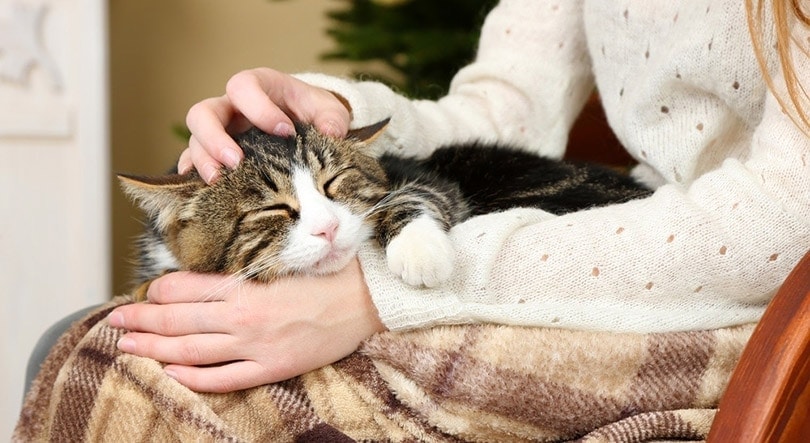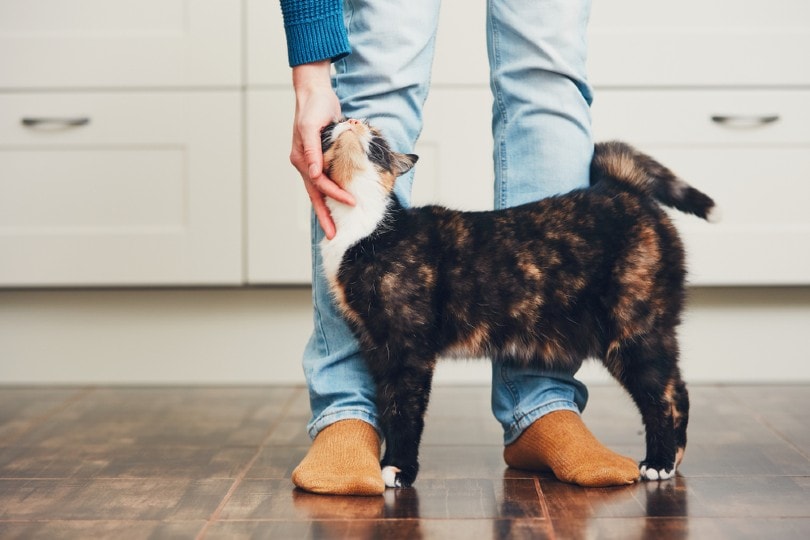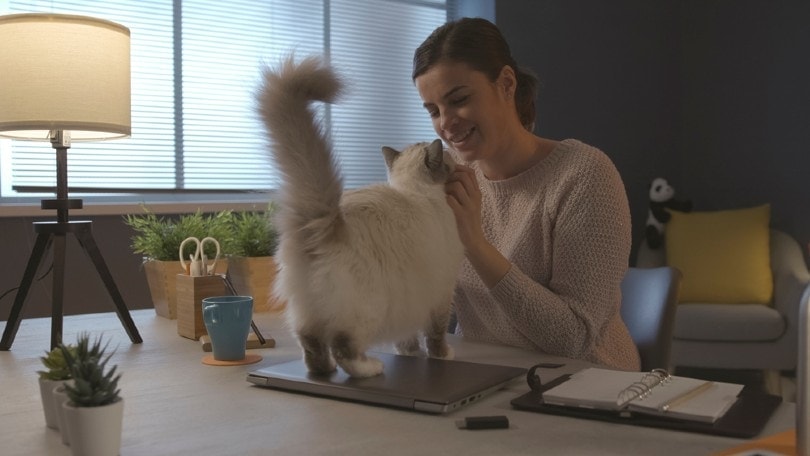
We look at our pets like they are members of the family. And we wonder, do they feel love for us? How do they know we love them? With cats, we often do not know what they are thinking!
We have science, psychology, and behaviorists to try to answer some of these questions. So, “Do cats feel love and affection?” Science says, yes, cats do feel love and affection, and this article will go over how they show it.
Signs of Affection
Cats show each other affection by raising their tail and kinking the tip. This is a typical show of affection from a cat. Next time you come home from work, look at your feline’s tail. If they come to greet you with their tail in position, they are showing their love for you. They are happy you are at home.
The next time you get annoyed at the cat for being on the counter, remember this. They are trying to get closer to you. They want to show their affection for you by rubbing your face or head bunting you. When a cat feels affection for you, they want to claim you. Leaving their pheromones on your skin lets other cats know that you are “their person”.
Kneading or “making muffins” is a show of a cat’s affection. If your cat is kneading on you, they are showing acceptance of your love and comfort.
Cats communicate with humans using mews, purrs, and chirps. If a cat feels love and safety in your company, they may mew, chirp or purr to accept your love. You are special to them, and they want to express this to you. Cats love attention but only from people they love and trust. If that isn’t love, we don’t know what is!

A cat will show affection toward you by climbing in your bed with you or cuddling on your lap. A cat will only expose their belly to people they truly trusts. Belly exposure is a risk for cats. If they are willing to be vulnerable with you, they trust and love you!
Cats will also show friendship and affection by grooming their humans. The slow blink is another sign of love. Your cat is staring at you, they appear content. They are slowly batting their eyes at you. It is their way of saying, “I’m in awe of you.”
If you are on the throne and all you see is your cat’s tail moving the curtain. They think you don’t see them. They are playing something similar to hide and seek. A sure sign that they enjoy being with you and wants to play. They love your attention.
For cats, bonding is experienced at an early age. Adult cats that like affection are usually socialized when they are kittens. In some instances, the act of affection and closeness to humans may be genetic. They are attentive when you are sick. That must be love.
Bonding
There are two things you can do to help your cat bond with you.

Summary
It all comes down to this, love feels good. Do you feel good when you are with your cat? When you are interacting with your pet, do you feel love and affection? Does it appear that your feline feels it too? If so, isn’t that all that matters?
Featured Image Credit: Africa Studio, Shutterstock








